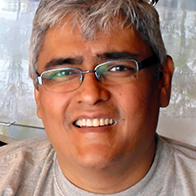As we get going into a brand new week of another squeaky clean new year, I thought I'd focus our attention on HIV and AIDS.
Especially, on some of the myths surrounding the disease and persons living with HIV (PLHIV) and AIDS. It's high time we got rid of them, folks!
Recently, I spoke with Raymond Tai, marketing and communications director at PT Foundation. I asked him to tell me more.
HIV is commonly spread among drug users when they share contaminated needles, or by irresponsible sex. Both drugs and sex are considered bad habits and immoral in our society.
So the general feeling is that PLHIV have only brought on God’s punishment on themselves.
"Illicit drugs are not only listed as an enemy of the state in Malaysia but drug addicts are portrayed as scum and parasites of society," Tai said.
"It's no different with the media when drug users or ‘drug addicts’ are viewed as an eyesore in society. They are seen as litterbugs and troublemakers in their families and neighbourhoods.
"They steal to support their habits and don't hesitate to rob, assault, injure or even kill to get what they want," added Tai.
He went on to say that while some of it were true, Tai argues that they should be seen as "symptoms of a deeper problem within society".
For example, how does one become a drug addict? What triggers a child or teenager to get involved in drugs? Why does drug addiction affect certain segments of society more than others?
Tai said even the rich are not spared. He knows of a case where the eldest in the family became addicted to drugs, contracted HIV, and eventually died. The younger siblings went on to become very successful individuals.
It's important to remember that “drug addicts” are essentially that – people who are dependent on drugs.
However, it's a complex disease. And quitting takes more than good intentions or a strong will, according to Tai.
In fact, because drugs change the brain in ways that foster compulsive drug abuse, quitting is difficult, even for those who are ready to do so.
"Drug addiction is a brain disease. Although initial drug use might be voluntary, abused drugs have been shown to alter gene expression and brain circuitry, which, in turn, affect human behaviour.
"Once addiction develops, these brain changes interfere with an individual’s ability to make voluntary decisions, leading to compulsive drug craving, seeking and use."
And it is these compulsive drug cravings which trigger erratic action, including sharing contaminated needles. It is a highly risky and infectious method in acquiring HIV and other diseases.
Drug users who are HIV positive need medical assistance such as methadone maintenance therapy and psycho-social counselling.
Family and friends' support is equally important after treatment.
Another common myth is it is better to let drug addicts die of AIDS because they eventually fall back to drugs.
"This is factually wrong," Tai vehemently argued.
"Many countries have had much success in treating drug dependents.
"The first step is recognising that while the cause of consuming illegal drugs is a social problem, drug addiction is a medical problem.
"In Malaysia, three decades of fighting drug addiction by criminalising it with imprisonment and mandatory cold turkey rehabilitation have failed to eliminate illicit drugs let alone reduce it."
On the contrary, the menace had fuelled another epidemic – at its peak, 22% of drug addicts also contracted HIV through not only infecting other drug users, but by infecting their spouses.
Worse, the virus was passed on from pregnant mothers to their newly born children.
Tai said in 2006, the Health Ministry and the National Anti-Drugs Agency embarked on the twin programmes of implementing the needle and syringe exchange programme and the national methadone maintenance therapy programme (MMT).
As a result, new cases of HIV infection among drug users were halved.
Drug addicts who voluntarily registered for the MMT no longer were addicted to harmful drugs like heroin. Many were able to get jobs and were reunited with their families and spouses.
Drug users, who are HIV positive and have managed to control their addiction problems, receive highly active anti-retroviral treatment which in turn keeps the HIV infection controlled to the point of becoming undetectable for HIV.
A softer and more compassionate approach, meanwhile, has shown strong evidence that drug addicts can become productive members of society.
With support from the family and the community, they are part of the solution to strengthen the family unit and the community.
The cost to treat them is also outweighed as a result.
"Finally, HIV does not recognise boundaries. If PLHIV are not provided effective prevention tools and treatment, they will infect their partners, spouses and possibly even their future children.
"We have seen how this tragedy has unfolded in many African states – leading even to national economic collapse." – January 5, 2015.
* This is the personal opinion of the writer or publication and does not necessarily represent the views of The Malaysian Insider.


Comments
Please refrain from nicknames or comments of a racist, sexist, personal, vulgar or derogatory nature, or you may risk being blocked from commenting in our website. We encourage commenters to use their real names as their username. As comments are moderated, they may not appear immediately or even on the same day you posted them. We also reserve the right to delete off-topic comments